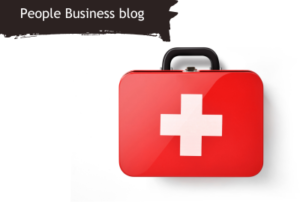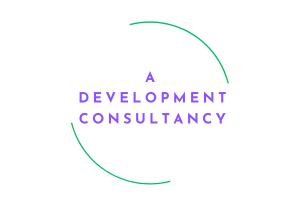What’s In Your Mental Health First Aid Kit?
 The contents of any first aid kit should be based on your needs; the only difference with a mental health first aid kit is that the items aren’t physical. Instead, they are learned strategies, so you can carry your kit with you wherever you go.
The contents of any first aid kit should be based on your needs; the only difference with a mental health first aid kit is that the items aren’t physical. Instead, they are learned strategies, so you can carry your kit with you wherever you go.
Regular first aid kits are used for treating sudden injuries quickly (“I’ve got a paper cut and need a plaster), whereas a mental health kit is more pre-emptive (“I am feeling more and more stressed; I need to get rid of some tension”). As soon as you notice those early warning signs, it’s time to refer to your first aid kit.
Take your temperature
Any good first aid kit needs a thermometer. When did you last take your emotional temperature? It’s a good idea to regularly take your emotional temperature, which ranges from 1 (I feel completely rubbish) to 10 (I feel fabulous, on top form). Keep a general note of your temperature to make sure it stays relatively level. What would it take to increase your temperature by 1 point?
Check your symptoms
Important: this table shows how different mental health conditions can share similar symptoms – it is NOT a diagnostic tool. Symptoms can range from mild to severe; if prolonged and the effects are having a negative impact on your life, contact your GP.
| Warning Signs | Stress | Anxiety | Depression |
|---|---|---|---|
| Physical |
|
|
|
| Cognitive |
|
|
|
| Behavioural |
|
|
|
| Emotional |
|
|
|
Remedies (strategies) to keep in your mental health first aid kit
These strategies, while not professional mental health interventions, are based on the latest mental health research and are available for anyone to use. Many individuals find these tools so powerful that they shine a light on their own experiences of stress.
Social Connection
We are social creatures with emotional needs for relationships and positive connections to others. We need the company of others to feel and function at our best.
- Call a friend or loved one
- If you don’t feel that you have anyone to call, reach out to acquaintances – an old friend, a co-worker, a neighbour
- Get away from the TV or computer screen
- Join – networking, social or special interest groups
- Smile and say hello to strangers you pass
Staying Active
The mind and body are intrinsically linked. Improving your physical health automatically benefits your mental and emotional well-being. Physical activity also releases endorphins, which lift mood and add energy.
- Aim for 30 minutes of activity most days (if it’s easier, 3 10 minute sessions can be just as effective)
- Try rhythmic exercise that engages both arms and legs, such as walking, running, dancing
- Include mindfulness in your workouts – focus on how your body feels as you move, the feeling of a breeze on your skin, etc.
- Most importantly – find an activity you enjoy
Managing Stress
Not all stressors can be avoided and we need a certain amount of stress to thrive. These techniques will keep any stress in check and within healthy levels.
- Talk to someone – this releases stress-busting hormones
- Appeal to your senses – listen to an uplifting song, light a candle with a fragrance you find calming
- Prioritise leisure time – walking, reading, crafts etc
- Make time for contemplation and appreciation
- Take up a relaxation practice – yoga, deep breathing, progressive muscle relaxation
- Understand and accept your emotions
Enjoying A Brain-Healthy Diet
A wholesome diet, low in sugar and rich in healthy fats, can give you more energy, improve sleep and mood, and help you to look and feel your best.
| Foods that adversely affect mood | Foods that boost mood |
|---|---|
|
|
Getting Quality Sleep
Getting enough sleep is a necessity, not a luxury, for mental health.
- Take time to unwind at the end of the day
- In the two hours before bedtime, avoid screens and devices
- Calm the mind and prepare for sleep:
- Take a warm bath
- Read by a soft light
- Listen to soothing music
- Practise a relaxation technique
- Stick to a regular sleep-wake schedule, even on weekends
- Ensure your bedroom is dark, cool and quiet
Having Meaning and Purpose
Finding meaning and purpose in life is essential to brain health; it generates new cells and creates new neural pathways in the brain.
- Engage in activities that challenge your creativity and make you feel productive – gardening, drawing, writing
- Quality time with those that matter to you
- Volunteering – the meaning and purpose derived from helping others or the community can enrich and expand your life
The self-care steps above are a great way to keep you mentally healthy, but if you find you are struggling with any of the symptoms associated with stress, anxiety and/or depression, and that those symptoms are prolonged and having a negative impact on your life, you should contact your GP. You can also find help and support from the Mental Health Foundation and via Mind.
If your company is interested in mental health awareness either for your managers or for all your employees, please contact us to discuss the details with one of our consultants.




